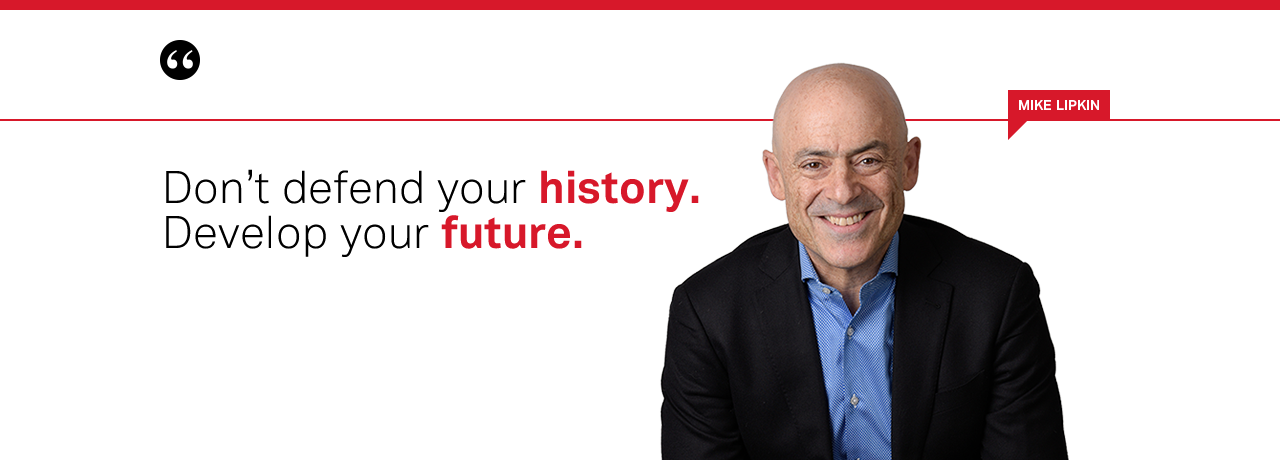On a recent trip to Encinitas, a small coastal town in Southern California, I went for a walk along the cliffs just above the beach. The very edge of the cliffs are gradually crumbling. There are signs that say, “WARNING: BLUFF AND TRAIL UNSTABLE. USE AT YOUR OWN RISK.” Rather than being obvious, the signs felt oddly profound, given what we’ve all just lived through. Many of us fear that at any moment our world can crumble and crash into the sea. COVID exacerbated that fear of collapse.
The word “brink” is defined as an extreme edge of land before a steep or vertical slope. It’s also defined as the verge or the threshold of danger. Some of the most valuable real estate in the world is perched on the brink. The most significant accomplishments are achieved at the very edge of endurance. The most powerful inventions push the boundaries of what stood before. You must learn to live and prosper on the brink before real change is realized.
Trust me when I tell you that I am way too familiar with burnout. Sometimes, I make myself more vulnerable to burnout. I push myself too hard. I take on too much. I refuse to lose. Until I can’t go any further. I reach a level of exhaustion or distress where I’m forced to pause and reconsider. Sound familiar? If you’re up to something big in your life, you’re going to take yourself to the brink, time and time again. As T.S. Eliot wrote, “Only those who will risk going too far can possibly find out how far one can go.” The operative phrase is risk going too far, not going too far. Going too far, too often, can make it impossible to accomplish your goals.
Breaking out of a burnout cycle is difficult. First, you must have insight: nothing happens until you recognize you’re burned out and something must change. Next, you need to make a plan to change, because finding a path out of burnout takes preparation and patience. As importantly, changing how you think, feel and behave takes time and effort. If you don’t change those, you’re bound to repeat the cycle. Third, addressing burnout requires system change, as it’s a workplace or a lifestyle challenge, not just a one-time problem to be solved.
Here’s a crucial truth: the only human being on earth you can control is yourself. Believing this, at a cellular level, takes time and work, but once you’ve done it, it will be freeing. Once you understand and accept that you can only control you, you’ll stop trying to change or control anyone else. You’ll use your energy to control what you can – your own thoughts, feelings and behaviours.
Change can be difficult because our brain is wired to repeat activities. The more we use the same group of brain cells, called neurons, the easier it is to complete an activity, because our brain creates hard-wired circuits. Neurons that fire together, wire together. When we learn something new, what we’re actually doing, on a cellular level, is using the same brain cells repeatedly. Learning occurs by literally wiring the brain to do a particular activity. Think about riding a bike – initially it’s difficult, but the more you practice, the more you don’t even have to think about it. Your brain becomes wired to do it automatically. However, the brain wires for good things, like riding a bike, but also for bad things, like experiencing repetitive negative thoughts or feelings or negative behaviours.
Sometimes, we need someone to guide us out of our misery and help us to make and sustain a much-needed change. We need their perspective and caring. We need them to ask us the questions, provide us with suggestions or simply direct us towards a corrective course of action. Ordinary molehills can mushroom into mountains without the intervention of trusted advisors. We all have the ability to support and coach people in our network.
In fact, social support is one of the most critical factors in maintaining our mental health or recovering from a mental illness. It can take many forms but the importance of the role of a caring guide, advisor, or compassionate ear can’t be overstated. Peer support has been shown to be a powerful aspect of recovery or endurance of medical challenges. Belonging to a group where members come together to confront mutual challenges can be hugely cathartic.
The difference between living on the brink of burnout and becoming burned out can be the community you build around you. They are the watch-people who stand on guard for you. The time to build your community is always now – so it’s there for you when you need it. The people who emerged stronger from the pandemic, those who were most resilient, were those who could access an array of allies, who were willing to help them in ways both big and small.
This is Mike Lipkin and here’s my final insight for this session: Today and tomorrow and the day after, earn the fellowship and support of the people who will be there for you if you find yourself going over the brink. It could be the most important thing you ever do.








Hi Mike,
It is always and pleasure to listen you. Your inspiration is so relevant given the back drop of the COVID 19. Do we dwell on the latter and getting deeper into the mental anguish or you it as the breaking point up motivate and up trust our feelings and associate ourselves to affiliate with others in the meanwhile so that when another pandemic or even risk or burnout raises its head we can be prepared.
samuel Baichoo
sambaichoo@hotmail.com
Excellent Mike! I look forward to seeing you soon.